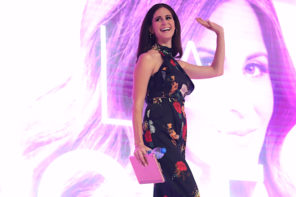A recent article by seminary student and Wheaton grad Jared LaFitte for hipster Christian magazine Relevant argues that the idea of “the one”—the perfect spouse—is un-Christian.
LaFitte attributes the idea that one should be “looking for your custom-fitted, perfect partner” to the influence of Hollywood, claiming that there is no basis for this idea in the Bible. Instead of seeking “the one,” young Christians should instead “consider the possibility that in your circles there could be two or three or five people with whom you could have an equally happy, satisfying, and God-glorifying marriage.”
LaFitte contends that one should “pray about it (not too hard), pick one, and move forward. If it doesn’t work, there will be others. Just don’t be too picky.”
It’s an odd line to include in his argument. For LaFitte, it seems that being picky about one’s spouse borders on sin. Why?
LaFitte’s article is, in many ways, a response to Pastor Joshua Harris’s 1997 Christian dating classic I Kissed Dating Goodbye, which brought the question of how one should date to the center of American Christianity. Harris rhapsodizes in the book about a process he calls “courtship”: similar to dating, but only taken on with intense seriousness, lest one be left damaged by relationship after relationship. I Kissed offered teenage Christians an enticing alternative to dating, and lent meaning to the teenage relationships that secular culture so often views as ephemeral. And since it was focused on the outcome of marriage, it was popular with parents, too.
Although Harris’s work has since fallen out of favor (he’s been blamed for having “seriously warped” a generation’s ideas about sexuality, and his church is now facing Protestantism’s largest sexual abuse scandal ever), the debate that he began over how to fix marriage by fixing courtship rages on. Articles like LaFitte’s appear to be Relevant’s bread and butter. They regularly publish short, pointed articles that attempt to address myths around dating and romantic life for Christians, such as “The Myth of Perfect Dating,” and “Three Things I Wish I Knew Before We Got Married,” the latter of which has more than 200,000 Facebook likes. Point is, many Christians are clearly interested in engaging in a frank and substantive conversation about love, dating, and sex, some inspired by Harris (and some by their distaste for him).
LaFitte’s argument is in many ways a rejection of Harris’s in that the very pickiness that Harris saw as essential to a godly life, LaFitte sees an impediment to marriages that should happen:
I’ve seen this happen so many times, my stomach hurts just thinking about it: A couple finds themselves in a relationship in which all signs point to marriage, but either the guy or the girl (sometimes both) is stalling because they’re not sure if their significant other is ‘the one.’




